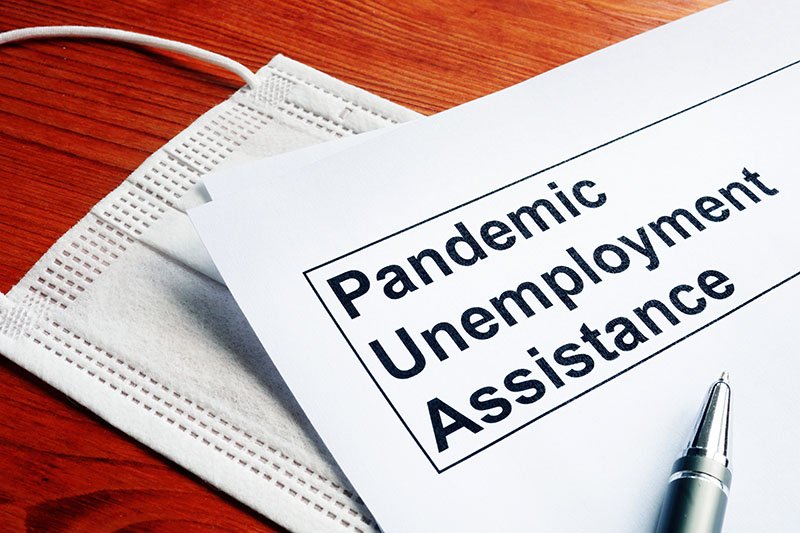
If You’re Called Back to Work and Don’t Go, Will You Lose Your Michigan Unemployment Benefits?
BY: Daniel D. Swanson | IN: COVID-19, Employment Law
For employees who don’t feel comfortable returning to work, or for those who face parenting challenges because of school or daycare closures, a fundamental question looms – Will I lose my unemployment benefits if I don’t go back to work?

If you are one of the tens of millions of Americans who filed for and are receiving unemployment benefits because of the COVID-19 pandemic, you probably would love to start earning a paycheck again. But you probably don’t want to put your life and those of your loved ones at risk to do so.
As states, including Michigan, begin to slowly reopen their economies, businesses that can resume operations have begun calling furloughed or laid-off workers back to their jobs. For employees who don’t feel comfortable returning to work, or for those who face parenting challenges because of school or daycare closures, a fundamental question looms – Will I lose my unemployment benefits if I don’t go back to work?
Fear Itself May Not Be Enough, But an Employer’s Failure to Follow Health and Safety Rules May Be
For individuals who work in close quarters with colleagues or serve the public, fears of contracting the virus are not unreasonable. That trepidation may not be enough, by itself, to preclude the loss of unemployment for refusing to go back to work. However, if the worker’s apprehension is based on their employer’s failure to take necessary or required steps to protect the health and safety of their workforce, that may justify staying home and retaining benefits.
Reopening businesses must follow workplace safety guidelines from the Centers for Disease Control and Prevention. This includes such things as providing adequate hand-sanitation stations, masks or protective equipment, adherence to social distancing policies, reducing capacity, temperature checks, and other precautionary steps. States may have additional requirements in addition to CDC guidelines.
If a business complies with all federal, state, and local safety measures related to COVID-19 and calls an employee back to their old job, they are providing that employee with “suitable work.” Generally, a worker who refuses “suitable work” will lose their eligibility for unemployment benefits. Guidance from the Department of Labor (DOL) Employment and Training Administration additionally provides that a general fear of exposure to the virus isn’t a good enough reason to refuse to work or quit your job.
Refusing Work Because You Make More From Unemployment Could Be Fraud
For some out-of-work employees, the increased unemployment benefits provided through the CARES Act means they may earn more by staying home than they would at their jobs. This is not a legitimate reason for refusing to return to work. In fact, The Department of Labor recently issued guidance noting that “quitting work without good cause to obtain additional benefits may be considered fraud.”
Personal or Family Reasons Related to COVID-19 Can Support a Refusal to Return Without Risking Benefits
The expansion of unemployment benefits through the CARES Act includes eligibility for individuals who are “unable to work” because of several reasons related to the direct effect of COVID-19 on themselves or a family member. Specifically, you can refuse to return to work and still receive Pandemic Unemployment Assistance (PUA) if:
- You have been diagnosed with COVID-19 or have symptoms of COVID-19 and are seeking a medical diagnosis.
- A member of your household has been diagnosed with COVID-19.
- You are caring for a family member or household member who has been diagnosed with COVID-19.
- You are the primary caregiver for a child or other person in the household who cannot attend school or another facility that has been closed as a direct result of COVID-19 and you need the school or facility care in order to work.
- You are unable to reach your job because of a quarantine imposed as a direct result of COVID-19.
- You are unable to reach your job because a health care provider has advised you to self-quarantine due to COVID-19 concerns.
- You have become the breadwinner or major support for a household because the head of household has died as a direct result of COVID-19.
If you have questions about returning to work or other employment issues relating to COVID-19, please contact the employment law attorneys at Sommers Schwartz today. We are working remotely and are still here to help.
– By Daniel Swanson and Tad Roumayah
Daniel D. Swanson
Dan Swanson has extensive experience in employment litigation, handling claims of breach of employment contract, non-competition agreements, discrimination, whistleblower claims, sales representative commission disputes, Family & Medical Leave Act claims, and other employment-related actions, as well as representing individuals in severance negotiations.





